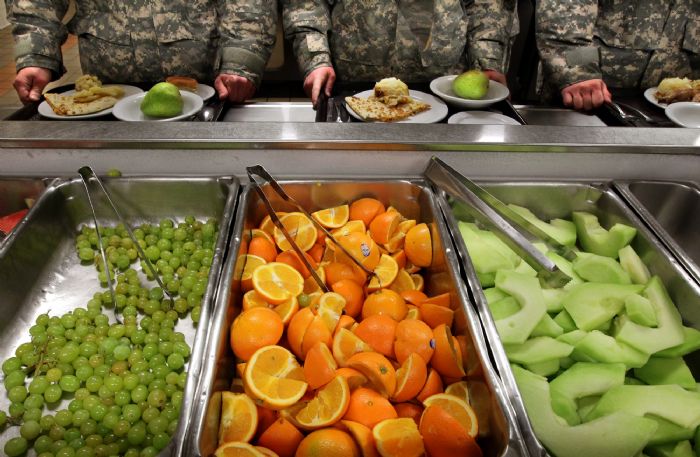The things that you can do in your 20s are not the same as the things you can accomplish in your 50s or even 70s. The same logic applies as to the food you put on your plate. As you age, your body is continuously changing over time and your diet plays a vital role in decreasing or increasing your risk of severe health problems.
Fortunately, preventing killer diseases such as heart disease, cancer, and diabetes is possible by building good and healthy eating habits. Read on below to have an idea of the different nutritional needs of men as they age.

Build a solid foundation in your 20s
You should keep in mind that your eating habits at this age will be your body’s foundation when you reach the age of 30s. In that age, your daily activities will tend to decrease which can result to weight gain. That’s why it is essential to maintain a balanced meal while you are in your 20s. Your usual plate should include vegetables, fruits, whole grains, and olive oil. To build lean muscle mass, you should eat foods that are rich in protein. Your goal for every meal is to have 30 grams of various healthy foods such as chicken, fish, eggs, nuts, and beans.
It is also important to limit your processed foods intake in your 20s. This includes packaged snacks as well as sodas. According to the American Heart Association (AHA), men should only consume 36 grams or lower of added sugar daily.
Eat your heart out in your 30s
Your life will probably be busier but less active when you reach your 30s. Your energy will be kept stored and your metabolism will be slower causing you to gain more weight easily. More fat means higher blood pressure which can lead to different severe health problems like heart disease.
What you can do is to regularly eat a balanced meal or have some snack every few hours in a day to constantly supply your brain with its needed nutrients. You should also start having a regular visit to your doctor to ensure that your blood pressure, cholesterol, and triglycerides are all at normal levels.
Eating foods that are rich in potassium such as bananas and leafy greens can help relax your blood vessels. Having the leaner meat and 3 servings of whole grain daily can also prevent your blood pressure from increasing.

Feast on colorful foods in your 40s
When you reach this age, the risk of getting diabetes, cancer, and even erectile dysfunction get higher. So it is just right to make disease prevention as your top priority at your 40s. And there is no better way to do that than increasing your fruit and vegetable intake. Your goal should be to have 2-3 servings of fruits and 3-4 servings of vegetables every day.
There was even a research made in the UK that suggests bumping your fruit and vegetable servings to 7 or more each day can lessen your risk of death by a whopping 42% as compared to those who eat less than 1 serving.
Colors may not be that enticing but dark green, orange, and red vegetables such as spinach, sweet potatoes, and peppers are actually high in antioxidants like beta-carotene which is a top-notch disease fighter.
Stress some nutrients for your bones in your 50s
Aging makes you lose bone mass and fragile bones are risky since they protect your major organs like your brain, lungs, and heart from injuries.
In your 50s, you should then have a minimum of 3 servings of calcium-rich foods daily to keep your bones sturdy and healthy. You can choose from milk, yogurt, leafy greens, and salmon. You should also load your body with vitamin D since it will not absorb calcium without the said vitamin. Since there are different recommendations for the right vitamin D intake for men, the best way to know your needed dose is to talk to your doctor.
What you should remember
As a man, your overall diet should meet your unique physical needs, be suitable for your lifestyle, and lessen your risk of any disease. Also, your nutritional needs differ from that of women or from your younger or older men colleagues. In order to determine the best healthy diet for you at a certain age, you can either follow approved dietary guidelines, seek an advice from an accredited dietician, or have a chat with your doctor. Lastly, whatever your age may be, always be mindful of your body and its needs by making healthy food choices and exercising regularly.